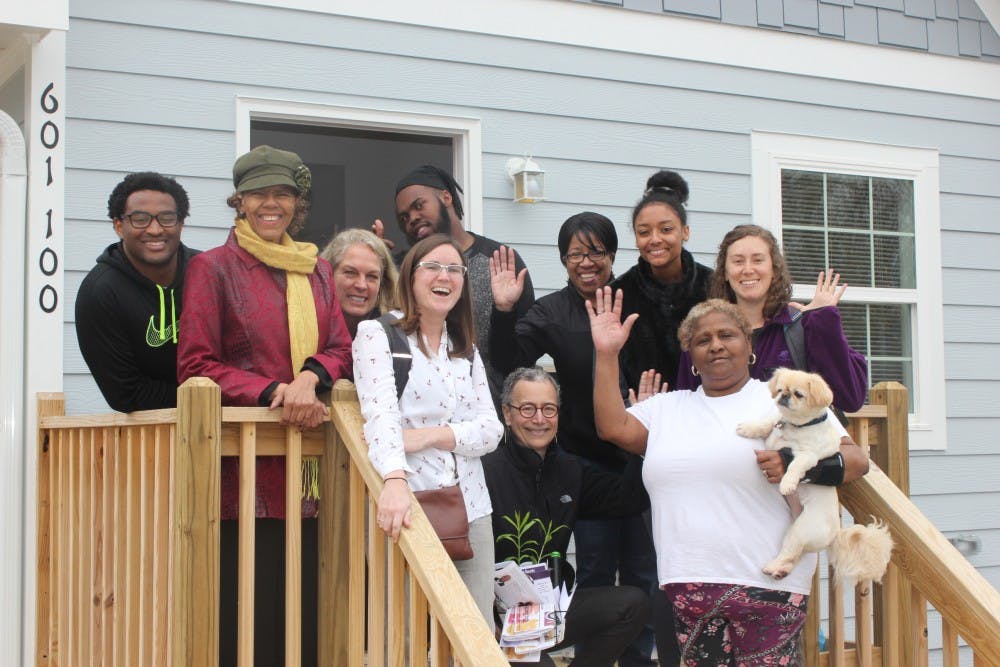Correction: The university's $3 million loan was to Self-Help Credit Union, the center did not receive any loan from UNC but is an active part in the utilization of that money to purchase community properties and facilitate a community Compass Group that makes decisions about what the center collectively does with those properties, including a range of affordable housing options with partners.
The Marian Cheek Jackson Center’s first principle is to listen — listen to community members, their partnerships and local residents.
“The first (principle) is listen and listen again,” said Della Pollock, the center’s executive director. “And the 11th one is if all else fails, go back to number one.”
Officially founded as a nonprofit in 2012, the center has grown and dedicated its purpose to building community in Chapel Hill's historic Northside and Pine Knolls neighborhoods.
Kathy Atwater, the center’s community advocacy specialist, said she’s retired after 30 years of working for the state of North Carolina and has lived in the Northside Neighborhood her entire life.
“I remember growing up with neighbors that knew each other, sharing joys and sorrows, knowing who lived around you, which brought safety because you knew who your neighbors were,” she said. “The Jackson Center has become a part of the community, not just someone outside looking in."
The origins of the nonprofit stem from 2001, when Pollock and one of her colleagues began working to connect their UNC classes with the Northside neighborhood to conduct oral history interviews concerned with local desegregation. Some of the residents in the neighborhood didn’t want their oral histories held by the University. According to Pollock, one resident responded, “We’ve already given them the shirts on our backs. Why should we give them our histories too?”
Since then, Pollock has collaborated and worked with many students through her course partnership where she also worked with then-student and now Senior Director Hudson Vaughan.




